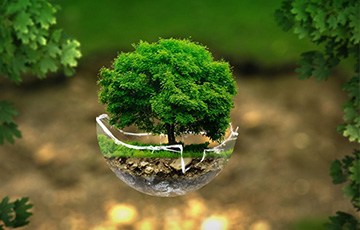
News
Nov . 06, 2024 03:34 Back to list
Exploring the Benefits and Uses of EDDHA Fertilizer for Plant Growth and Soil Health
The Benefits of EDDHA Fertilizer for Agriculture
In the world of agriculture, the quest for effective and sustainable fertilizers has led to the development of various innovative products. One such product gaining prominence is EDDHA (ethylenediamine-N,N'-diacetic acid) fertilizer, a chelated form of iron widely used to address iron deficiency in plants. This article will explore the properties, advantages, and applications of EDDHA fertilizer, shedding light on why it is becoming a staple in modern agricultural practices.
Understanding EDDHA
EDDHA is a chelating agent that binds iron ions, making them more available to plants. Iron is an essential micronutrient required for various physiological processes, including photosynthesis, respiration, and enzyme function. However, iron is often present in forms that are not easily absorbed by plants, especially in alkaline soils where it can become insoluble. EDDHA helps overcome this challenge by stabilizing iron in a form that plants can readily uptake, even in less-than-ideal soil conditions.
Advantages of EDDHA Fertilizer
1. Enhanced Nutrient Availability One of the primary benefits of EDDHA fertilizer is its ability to deliver iron to plants efficiently. Unlike traditional iron sources, which may become less effective in high pH soils, EDDHA maintains its effectiveness across a wide range of soil conditions. This ensures that plants receive the necessary iron for optimal growth and development.
2. Improved Plant Health By preventing iron chlorosis—a condition characterized by yellowing leaves due to insufficient iron—EDDHA fertilizer supports overall plant health. Healthy plants are more resilient against pests and diseases, leading to higher yields and better quality produce.
3. Environmental Sustainability EDDHA is considered an environmentally friendly option compared to some chemical fertilizers. Its precise application minimizes excess runoff, reducing the risk of water contamination. Additionally, because EDDHA increases nutrient use efficiency, it can help reduce the overall amount of fertilizer needed, thereby promoting sustainable agricultural practices.
eddha fertilizer

4. Versatility EDDHA is suitable for a wide variety of crops, including fruits, vegetables, and ornamental plants. It can be applied via soil application, foliar spraying, or through fertigation systems. This versatility allows farmers to integrate EDDHA into existing agricultural practices easily.
5. Longevity in Soil Once applied, EDDHA fertilizer can remain effective in the soil for an extended period. This longevity means that farmers may not need to apply nutrients as frequently, leading to reduced labor and cost over time.
Applications of EDDHA Fertilizer
EDDHA fertilizer is particularly valuable in regions where soils are alkaline or where iron deficiency is common. For instance, in many arid and semi-arid regions, soils tend to have higher pH levels, leading to iron binding and reduced availability. In such areas, the application of EDDHA fertilizer can significantly improve crop performance.
In horticulture, where the aesthetic and nutritional quality of plants is paramount, EDDHA is commonly used to ensure vibrant foliage and healthy growth. It is also integrated into hydroponic systems, helping to maximize plant health in controlled environments without soil.
Conclusion
In summary, EDDHA fertilizer stands out as a powerful tool in modern agriculture. Its ability to enhance iron availability, support plant health, and promote sustainable farming practices makes it an invaluable resource for farmers worldwide. As the agricultural landscape continues to evolve, the integration of innovative products like EDDHA will be crucial in meeting the challenges of food production and environmental stewardship. With its numerous benefits, EDDHA fertilizer not only helps in boosting crop yields but also contributes to the overall health of our ecosystems. As farmers and horticulturists increasingly turn to this effective solution, EDDHA is poised to play a significant role in the future of sustainable agriculture.
-
Polyaspartic Acid Salts in Agricultural Fertilizers: A Sustainable Solution
NewsJul.21,2025
-
OEM Chelating Agent Preservative Supplier & Manufacturer High-Quality Customized Solutions
NewsJul.08,2025
-
OEM Potassium Chelating Agent Manufacturer - Custom Potassium Oxalate & Citrate Solutions
NewsJul.08,2025
-
OEM Pentasodium DTPA Chelating Agent Supplier & Manufacturer High Purity & Cost-Effective Solutions
NewsJul.08,2025
-
High-Efficiency Chelated Trace Elements Fertilizer Bulk Supplier & Manufacturer Quotes
NewsJul.07,2025
-
High Quality K Formation for a Chelating Agent – Reliable Manufacturer & Supplier
NewsJul.07,2025
